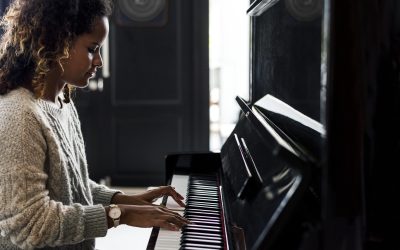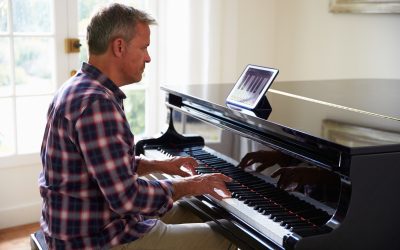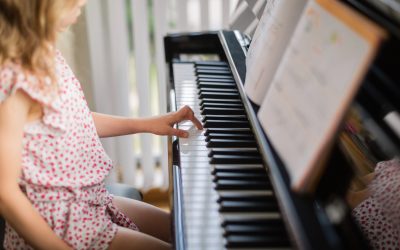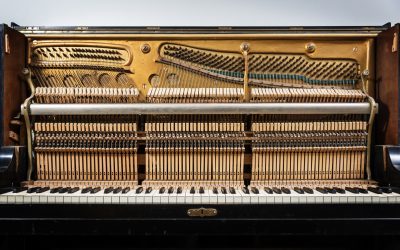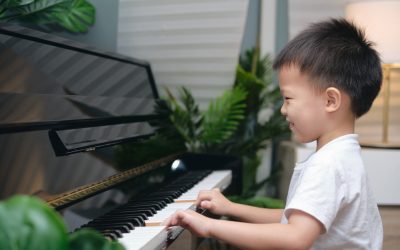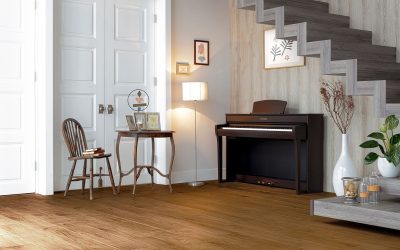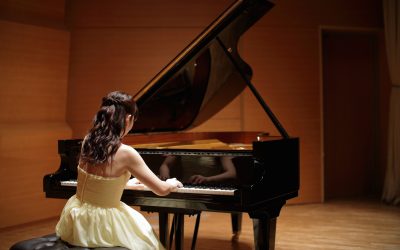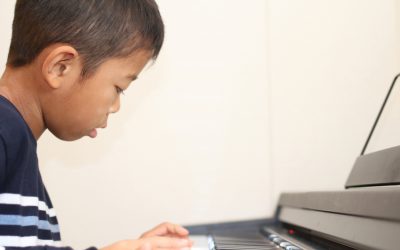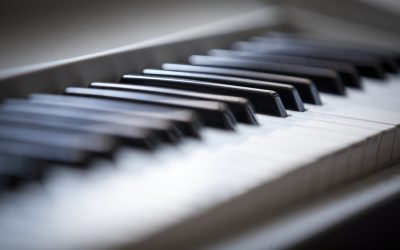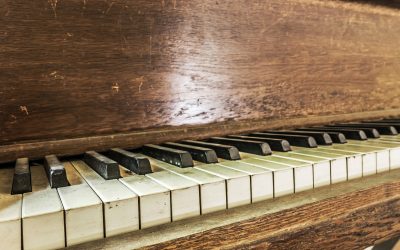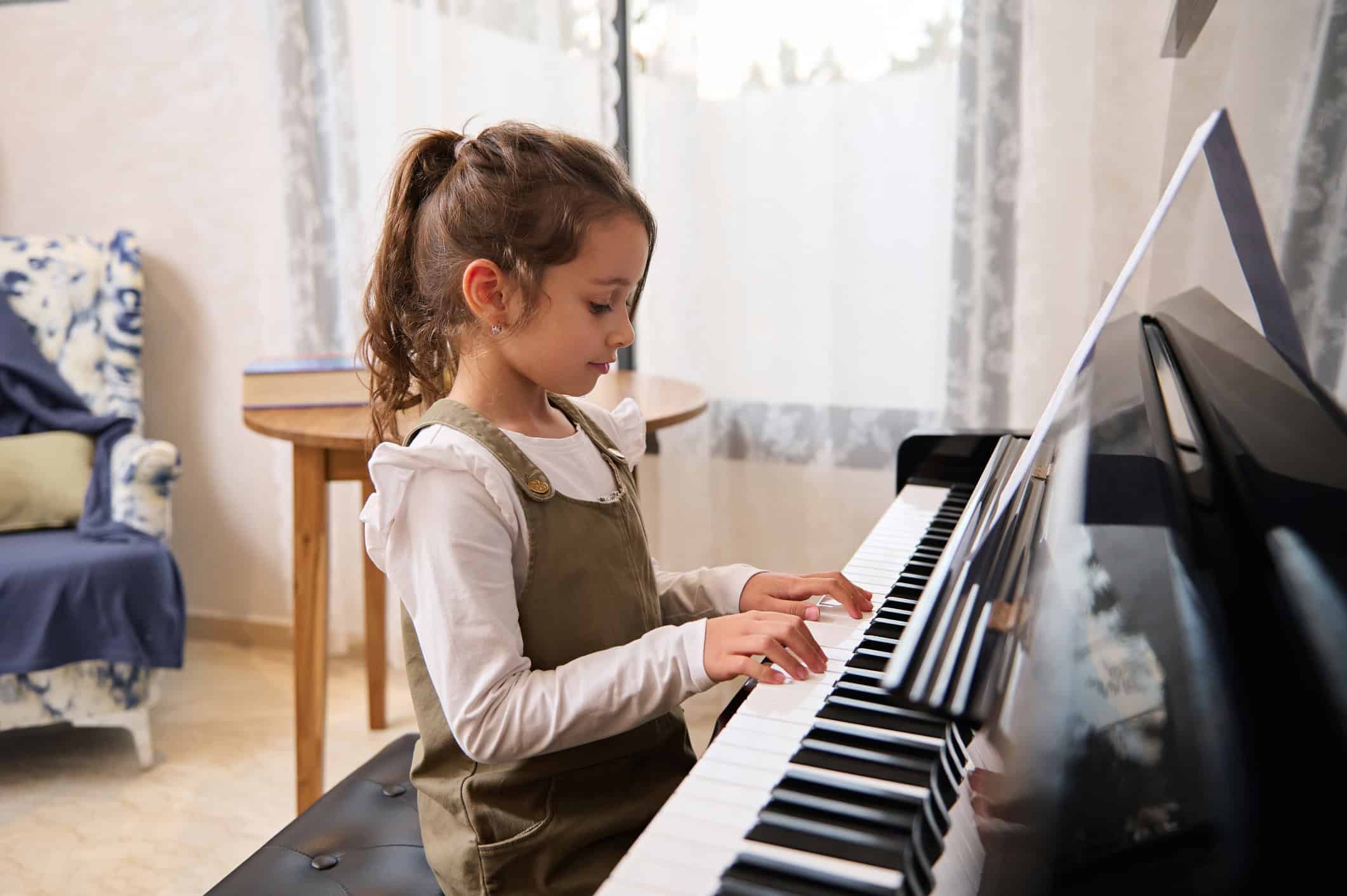
As a piano teacher, I’ve had the pleasure of guiding many young students on their musical journey. But sometimes, as with any learning path, not every student is initially thrilled with the idea of practicing an instrument. I recently had the privilege of working with an eleven-year-old student who, when she first came to my studio, was anything but enthusiastic about learning to play the piano. She saw it as just another chore, something her parents wanted her to do.
She’s an avid ballet dancer—her world lit up when she talked about ballet, and her eyes would sparkle when she mentioned her favorite dances. So, I asked myself, “What if we could bring some of that movement, that joy she finds in dance, into our piano lessons?” And so began our journey to make piano a natural extension of her love for movement.
Bringing Ballet into Piano Lessons
From the beginning, I tried to find ways to incorporate her passion for dance into our music lessons. We started with rhythm exercises, which we turned into dance breaks. We would get up from the piano bench, clapping our hands to the rhythm or swaying to the tempo of a new piece. This allowed her to “feel” the beat in a way that was comfortable and fun for her. The piano, I suggested, wasn’t just about pressing keys; it was about feeling the music, letting it move you from the inside out—just like dance.
As we progressed, I encouraged her to imagine the flow and sway of the music in her fingers as she played. She loved this concept, and it helped her become more expressive in her playing. Her piano practice sessions gradually transformed from rigid practice to moments of expression. She started to appreciate the piano as a tool for expressing herself and the emotions she channeled through dance. It’s amazing to witness that moment when a student’s mindset shifts and the instrument becomes a source of joy rather than a task.
Building Confidence Through Music
A turning point came when she visited a friend’s house that had a piano. She ran over to the instrument, eager to share her newfound skill, and played one of her favorite pieces. Her friends were impressed, and she felt a surge of pride and confidence. The next time she came to class, she couldn’t stop talking about it. I could see how much it meant to her to be able to share this part of herself. For the first time, I felt like we had truly broken through that initial resistance.
Every lesson since has been filled with a lightness and joy that was absent before. She’s excited to learn new pieces, motivated to practice, and is constantly looking for ways to bring her unique movement style into each song. Watching her transformation fills my heart with pride and gratitude. I know this joy she has found in music will stay with her forever, enriching her life in countless ways.
Keeping Students Engaged in Piano Lessons
Each student is unique, and what worked for one may not be the answer for another. Here are some ideas for other teachers and parents who want to inspire that same spark in their own children’s music lessons:
- Incorporate Their Interests: If a student loves sports, animals, or video games, find ways to connect those passions to their music lessons. I once had a nine-year-old boy who was absolutely crazy about Minecraft and video games. He wasn’t initially excited about learning traditional piano pieces, but his enthusiasm skyrocketed when we discovered an “Alfred” popular songs book that included one of the Minecraft theme songs. Suddenly, practicing became a highlight for him. He worked on that piece until he could play it from memory, and now, every time he sees a piano, he proudly plays the theme without even looking at the music. It’s amazing how aligning lessons with a child’s interests can unlock their motivation and love for music.
- Introduce Movement and Rhythm Games: For many kids, rhythm is easier to grasp when they can feel it physically. Dancing, clapping, or tapping to the beat can make rhythm work much more engaging and fun, especially for students who love to move.
- Encourage Self-Expression: Piano doesn’t have to be just about playing notes on a page. Encourage your student to add their own dynamics, experiment with tempo, and personalize each piece they play. This can give them a sense of ownership and pride in their music.
- Celebrate Small Wins: Children often get discouraged if they feel like they’re not progressing fast enough. Celebrating every small accomplishment—learning a new piece, mastering a tricky passage, or just sitting down willingly to practice—can help keep them motivated.
- Use Positive Reinforcement and Patience: Sometimes, it just takes time for a student to warm up to the idea of playing an instrument. Patience, encouragement, and small positive reinforcements can make a world of difference.
- Make Practicing a Shared Experience: If a student has a sibling or a friend who plays, try turning practice sessions into duets or fun challenges. This can make practice more social and enjoyable.
The Gift of Music for Life
As a piano teacher, I’m often reminded of a common regret I hear from adults: “I wish I had stuck with piano lessons when I was a kid.” The benefits of learning piano, from enhancing cognitive skills to building discipline, are undeniable. But beyond that, music is a lifelong gift. It provides an outlet for self-expression, a source of comfort during hard times, and a way to celebrate life’s joys.
For my young student, I can already see the pride and confidence she feels when she plays, and I know she’ll carry that with her. Even if she doesn’t pursue piano professionally, she will always have this ability to sit down and play, to create music for herself and others. And that, I believe, is a beautiful and invaluable gift.
Teaching piano is about so much more than simply imparting technical skills—it’s about inspiring a love for music that will last a lifetime. And when I see that spark in a student’s eyes, the light that comes from finding joy and fulfillment in their playing, I know that all the time, effort, and patience are worth it. Helping a student fall in love with music is one of the most rewarding experiences a teacher can have.
Encouragement for Parents: Keep the Long-Term Perspective
For parents, it can be disheartening when a child is resistant to piano lessons, especially if they express a desire to quit. This struggle is common, and many students go through phases where practice feels like a chore. But, as a teacher, I encourage parents to keep the long-term perspective in mind. Learning an instrument can be challenging at first, and it often takes time for children to connect with the music on a deeper level. But when they find that spark—whether it’s through a song they love, the thrill of mastering a piece, or the joy of playing for friends and family—it can transform their entire attitude. Patience and encouragement are key, and finding ways to make lessons enjoyable can turn this initial resistance into a lifelong passion. Remind your child (and yourself) that perseverance now can lead to an invaluable skill and source of joy they’ll carry with them throughout their life.
About the Author
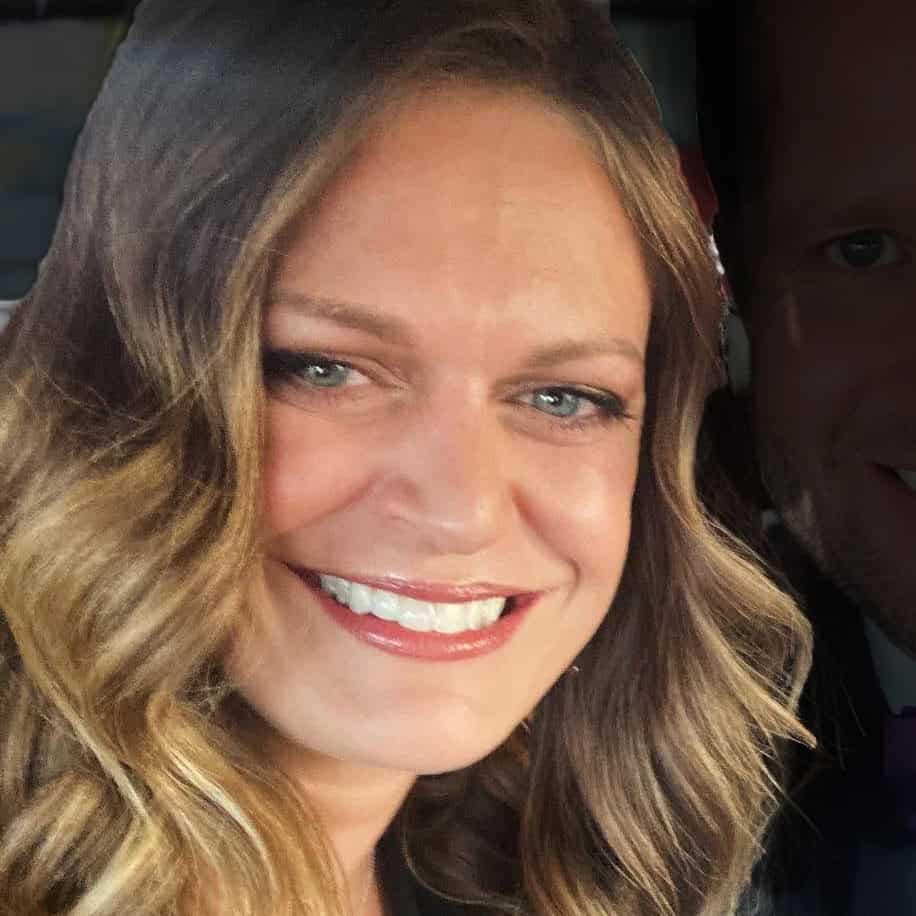
Mikelle Despain
Piano Insights Author
Mikelle is a classically trained pianist and piano teacher who has been in the piano retail industry for over 20 years. Her dream piano is a Yamaha S5X. She currently provides expert insights for Piano Gallery to share information and advice for buying, playing, and enjoying the piano. When she's not writing or playing piano, she's spending time with her four kids, tending her vegetable garden, boondock camping, hiking, or cooking for friends.
Further Reading...
Largest Collection of Quotes About Playing the Piano
When you're a pianist, playing the piano isn't just a hobby, it's a lifestyle. Even causal players feel a deep, meaningful connection to the instrument. In this article, we share some of our favorite quotes about playing the piano, because #IYKYK Favorite Piano Quotes...
Encouraging Yourself to Play Piano More as an Adult
Playing the piano is rewarding, not only for the relaxation it provides, but also for the sense of accomplishment, confidence, and stress release if offers. However, for many adults, it can feel frivolous to take the time to play the piano. With so many other...
How to Keep Your Child Motivated to Practice the Piano
You picked the perfect piano, hired a highly-rated piano teacher, and bought your child a stack of books to learn how to play the piano—but one thing’s missing: their motivation to practice. Even if a child is super excited to learn to play the piano, there are some...
Top Health Benefits of Playing the Piano
There are many reasons people choose to play the piano—for pleasure, skill development, stress relief, and more. In this article, we explore the health and wellness benefits of playing the piano. How Playing the Piano Supports Health & Wellness Playing the piano...
Upright vs. Grand Pianos: Differences & Benefits
The choice between an upright or grand piano usually comes down to size, price, aesthetic, or all three. However, for those piano buyers who have wiggle room (literally and figuratively) in choosing a piano, the conversation about the difference between an upright and...
Yamaha U Series Upright Pianos
Yamaha is a world-renowned name in pianos because of their quality, reliability, and beauty. With a rich history of piano craftsmanship beginning in 1887, the heritage of Yamaha has made it one of the most respected names in the industry. About Yamaha’s U Series...
Yamaha Clavinova Digital Pianos: A Complete Guide
The Yamaha Clavinova is a world-renowned digital piano manufactured to emulate the touch, feel, and expression of an acoustic grand piano while offering a wide range of additional features, technology, and capabilities. In this article, we answer some of the most...
Ideas for Planning an Engaging Piano Recital
Piano recitals, especially for younger students, often have a reputation of being a little blasé. However, with the right preparation and innovation, a piano recital can be a captivating, elevated experience for its attendees. 10 Tips for a More Engaging Piano Recital...
Understanding the Difference Between a Keyboard and a Digital Piano
If you're new to the world of music or considering an upgrade from your current instrument, you might be wondering about the differences between a keyboard and a digital piano. While both instruments share similarities, they also have distinct characteristics that...
How Digital Pianos Can Enhance Music Education
For new or experienced piano students, a digital piano can be an exceptional tool for enhancing music education. This is especially true for new or young piano students. In our blog “Best Pianos for Beginners,” we further discuss this fact as we discuss our choice of...
How to Clean and Maintain Your Yamaha Clavinova
While Yamaha Clavinova digital pianos require less maintenance than digital pianos as they don’t require annual tuning, regular cleaning and maintenance can help extend the life and performance of a Clavinova. In this step-by-step guide, we walk you through the...
About Free Pianos: What to Know Before Accepting a Free Piano
If you are in the market for a pre-owned piano, you may have seen many classified ads for pianos people are giving away for free. But why are there so many free pianos and should you be wary of accepting a free piano from a friend, family member, or neighbor? Why Are...
